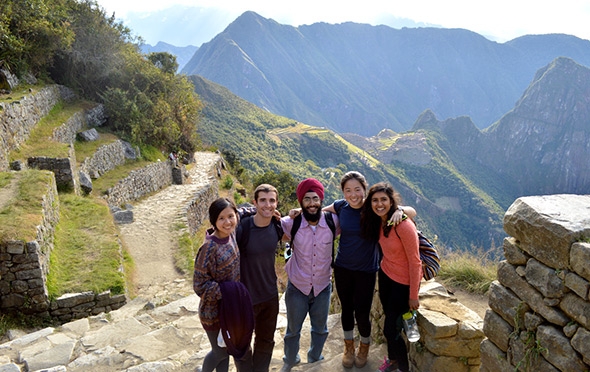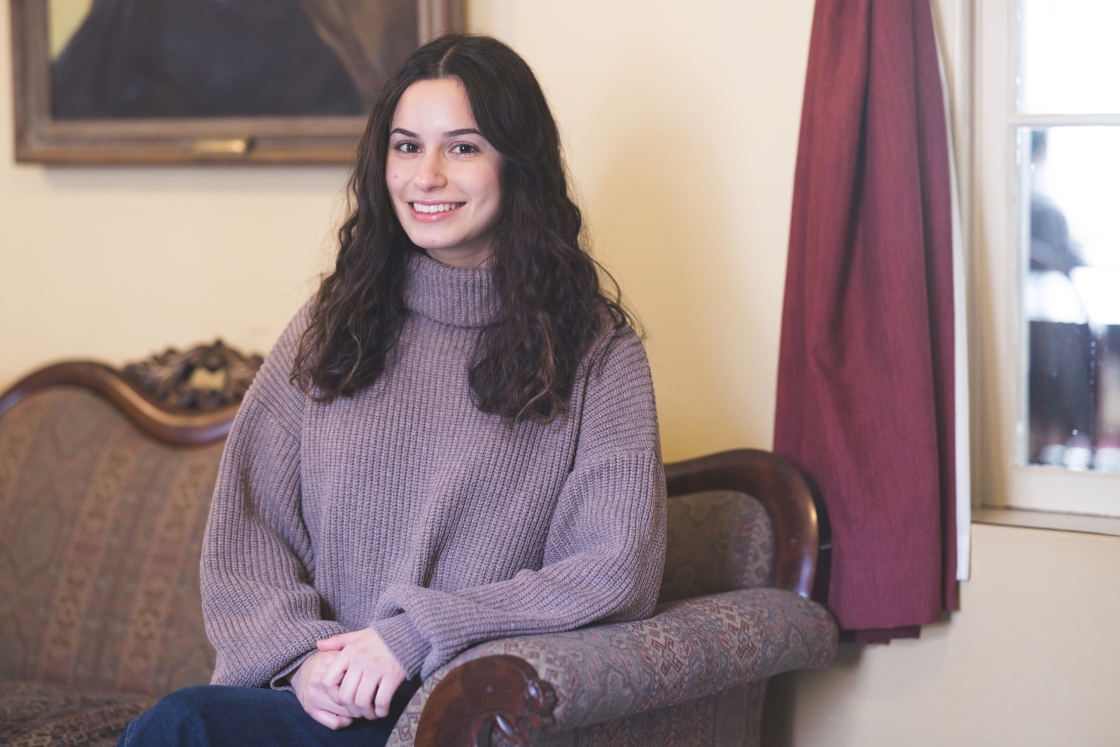Read the full story by Jonathan Riggs, published by the Tuck School of Business.
Surrounded by the snow-capped Andes in the Huancavelica region of Peru, William Hirschfeld ’14 and five Dartmouth undergraduates spent two weeks last summer consulting for a social entrepreneurship nonprofit working to empower local farmers.

As part of their research, the students—participants in Tuck’s Paganucci Fellows Program—spent a day observing a dairy farmer make goat cheese. Using ancient artisanal methods, the farmer curdled the milk via an unweaned goat’s stomach, removed the whey, and molded the drained cheese with handwoven baskets. While the cheese dried, the farmer’s wife treated the students to choclo con queso, an Andean culinary favorite.
“That visit gave us a real appreciation for the culture of the farmers our project was meant to help,” says Hirschfeld. “As we formulated our business plan, it made us realize how important it is for us as consultants to consider the cultural practices that these farmers have used for generations.”
Directed by Tuck’s Center for Leadership, the Paganucci Fellows Program offers Dartmouth undergraduates and recent graduates an intensive eight-week education in global experiential learning, personal leadership development, and social entrepreneurship. Named in honor of Paul Paganucci ’53, Tuck ’54—former investment banker, associate dean at Tuck, and chief financial officer and treasurer at Dartmouth—the idea for the program originated with Tuck Dean Paul Danos and has received continuous support from the Sherman Fairchild Foundation since 2006.
Previous Paganucci projects included creating an e-learning tool in Liberia and prototyping a financial-inclusion product in Ghana. This year’s project focused on helping Peruvian alpaca and dairy farmers take greater control of their livelihoods. Currently, the farmers sell their raw materials (alpaca fiber or milk) to intermediaries at low profit margins. According to ProSynergy, the nonprofit for whom the students consulted, farmers could boost their income by processing these raw materials into value-added products (yarn or cheese) and selling it directly to the nonprofit’s yachaywasis, or eco-technology farms, at a higher profit margin.
